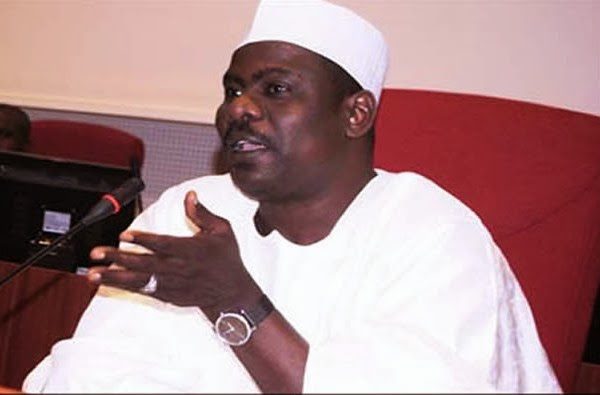Educational Issues
ASUU STRIKE: Is Studying In Nigerian Public Universities A Crime? -By Emmanuel Bulus Jnr.

Education is the panacea that liberates individuals from slavery while the university is the brain box of a nation and the key to success. As such, *Adamu and Nwogo (2014)* assert that education plays a lead role in ensuring the transformation of countries from developing to a developed nation. The education system in Nigeria comprises of
the primary, secondary and tertiary institutionl. Tertiary education is an advanced education system in which students are educated to become qualified professionals in their various careers. In Nigeria, tertiary education includes: the colleges, polytechnics, and universities which are assumed to be the highest level of a tertiary institution. This piece interest is on the university as a tertiary institution, the incessant strikes embarked by the Academic Staff Union of Universities and it’s ripple effect on the Nigerian educational system and the future of the the students in these universities.
It’s no news that, it’s been over nine months now since academic activities in most public universities across the country were suspended due to an embarked strike by Academic Staff Union of Universities (ASUU).
Well, this is actually not the first time the Federal government and ASUU will be having issues. Neither is ASUU strike a new thing or even something to be surprised by. As a matter of fact, it’s fast becoming a tradition for ASUU to strike at least every year or two. The reason for their strikes has always been that the Federal government is owing lecturers and has refused to pay.
However, this time around it was learnt that the dispute between ASUU and the Federal government which gave birth to the strike of over nine months resulted from the Integrated Payroll and Personal Information System (IPPIS) which the Federal government adopt for the payment of all Civil servants (including University lecturers). The University lecturers are not satisfied with the newly introduced means of salary payment which triggered the grievances that led to a protest against the system.
Nevertheless, I am most interested about the innocent Nigerian students who are feeling the heat of the fight between the Federal government and ASUU.
While this fight lingers one thing is certain, the collateral damages affect not just the Nigeria education sector but the future of the students in these universities. The recent strike of the ASUU has crippled the educational system in Nigeria with a whole lot of ripple effects, some of which are: some students have lost interest in continuing their programs, some student now deem it fit to venture into the street in search for greener pastures in which they earn a stipend. Parents and students have lost hope in the Nigerian educational system, well to do parents prefer sending their children abroad to study rather than sending them to Nigerian public universities.
Research has shown that students’ performance in examination drops upon resumption from a strike. This is due to the fact that students are far away from the academic environment during the strike. As such less credence is given to reading and all forms of academic activities.
Again, there’s increase in youthful crime and immorality in the society. As it is rightly said that an ideal hand is the devil’s workshop, due to lack of vision and mission youths go around doing all forms of unlawful business like gambling, Yahoo and so on. The rate of unwanted pregnancy during strike is also alarming as most students just wander about in no particular direction.
Our contemporaries in other countries have access to free tertiary education, those who don’t, have access to financial packages to help cope with the burden, and they’re guaranteed quality education. Here in Nigeria, we are faced with an ever decaying educational sector. A nation like Nigeria should have legacy institutions like the Americans have the Ivy-leagues schools, the French have the science Po and Grand Ecoles, instead our institutions are battling with strikes, poor funding amongst other ills.
Our leaders know that our education system is bad and you see them flying abroad to celebrate their children’s graduations and are even brazen enough to post this show of shame on social media.
*RECOMMENDATION*
Due to the incessant strike in our public universities, the following recommendations are suggested:
1. The government should ensure that quick action is taken when any request is being made by ASUU.
2. An independent body be set up by the Federal government to ensure that ASUU is transparent in its dealing with the government.
3. An external Universities monitoring committee be set up whose responsibility will be to co-operate with ASUU on the recent challenges the universities are facing and to relate back to the government for prompt action.
4. A suitable salary payment platform should be introduced by the Federal government for payment of lecturers, since ASUU vehemently refused payment through IPPIS.
5. The government should draft a long term working plan, maybe 5 -10 years making Nigerian Public universities a world class Universities.
6. A Law should be enacted making it obligatory for all political office holders to enroll their children in Nigerian Public universities and to make enrollment in private or public universities by them an automatic resignation from office.
*CONCLUSION*
With the incessant strike in our public universities that has collateral damage not just on the educational system but the future of the students in these universities, one would be tempted to ask several questions; where is the Nigeria education system really headed? How can an average student from a Nigerian Public university compete in today’s world? is studying in Nigerian Public universities a crime? If our leaders fail to rise to their responsibilities and become deliberate about the educational system in Nigeria, the effects of poor education on successive generations will be devastating. We would be left behind in an ever changing world.
*EMMANUEL BULUS JNR* is a final year Law student of Ahmadu Bello University, Zaria. He can be reached via emmanuelbulus801@gmail.com or 08131052299
*REFERENCES*
* Adamu, I. and A. Nwogo, 2014. Impact of academic staff union of universities (Asuu) strike on quality of university education in Nigeria. ATBU Journal of Science, Technology and Education, 2(2): 112-118.
*Adesulu, D., 2014. Incessant ASUU strikes: Bane of education sector, 5(6): 1-13. Available from
http://www.vanguardngr.com/2012/08/incessantasuu-strikes-bane-of-education-sector/ [Accessed 20th January,
2014].
*Monogbe B.O and Monogbe T.G , 2019. ASUU strike and Nigerian educational system: An empirical investigation of the tertiary institution. American Journal of social sciences and humanities. Vol 4, No 1, 56-67.
* Reginald Tobin, like two elephants, when FG and ASUU fight, Nigerian students suffers, published at the opinion Nigeria website on the 18th November, 2020.




















